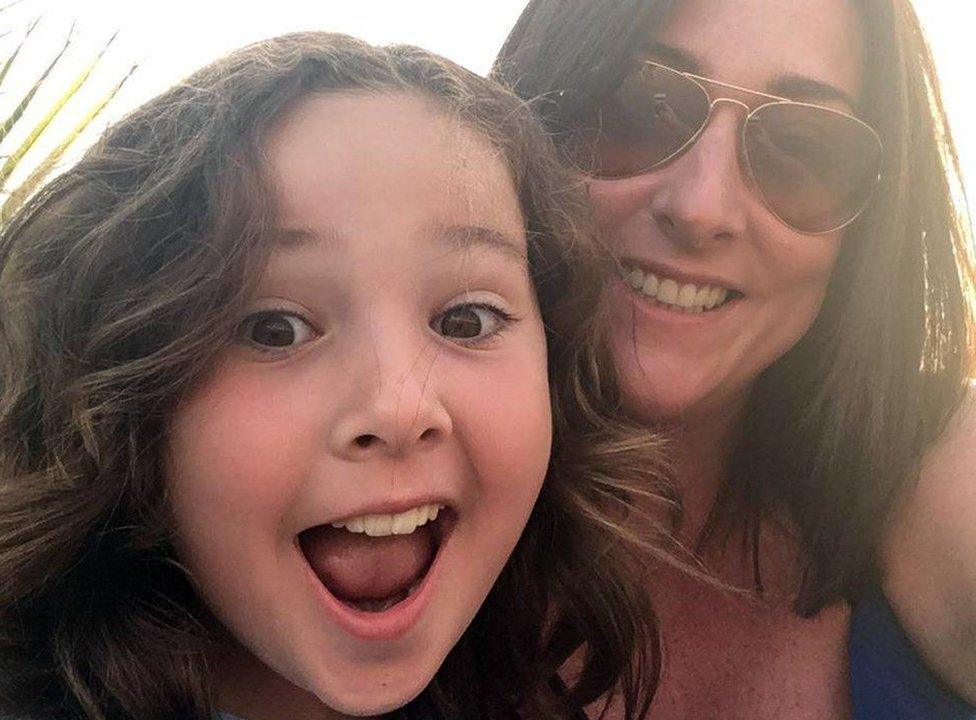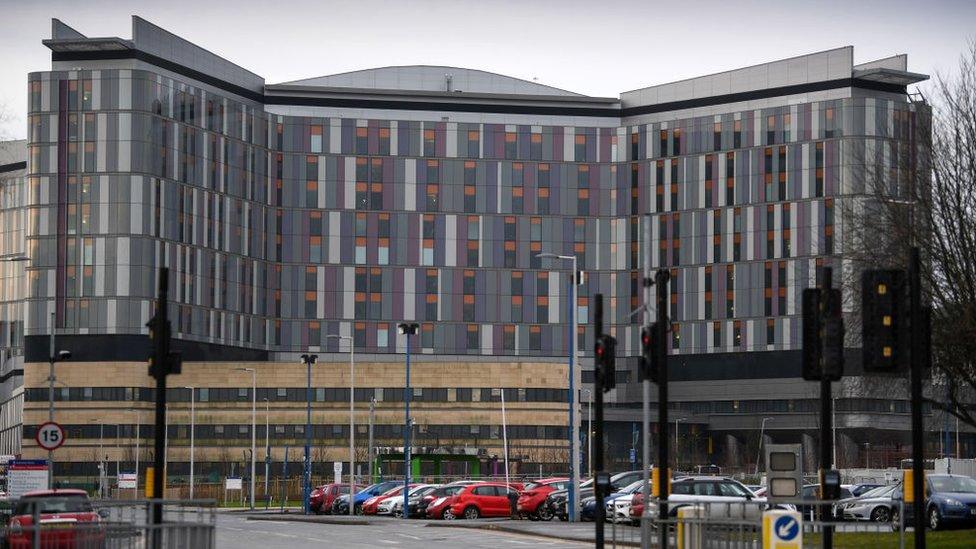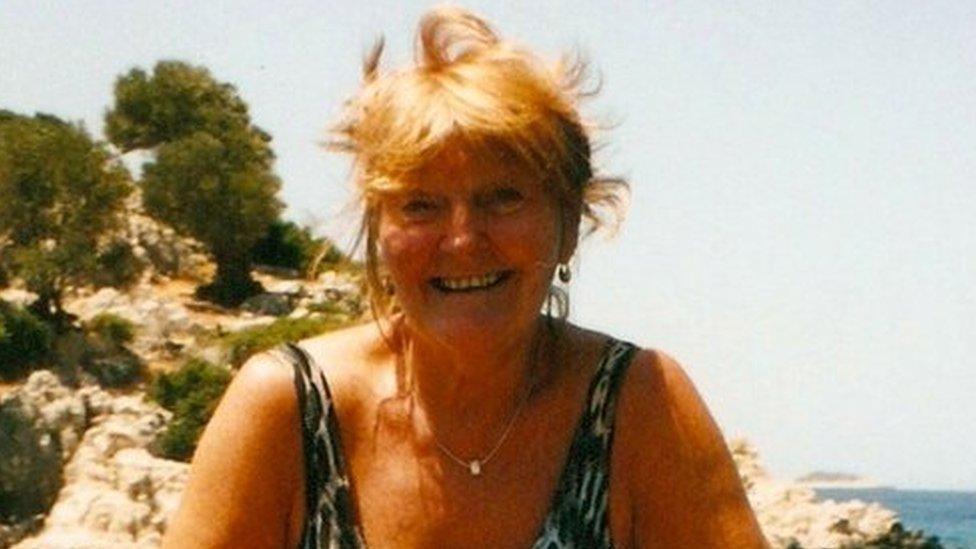Milly Main: Criminal investigation over hospital deaths
- Published

Milly Main died after contracting an infection at the Queen Elizabeth University Hospital campus in Glasgow
Police have launched a criminal investigation into a number of deaths at a Glasgow hospital, including that of 10-year-old Milly Main.
It comes as a separate public inquiry into the building of several Scottish hospitals is being held.
Milly's mother recently told the inquiry her child's death was "murder".
A review in May found an infection which contributed to Milly's death was probably caused by the Queen Elizabeth University Hospital environment.
The Crown Office and Procurator Fiscal Service has now instructed police to investigate the deaths of Milly, two other children and 73-year-old Gail Armstrong at the Glasgow campus.
It is understood the probe could lead to criminal charges or a fatal accident inquiry.
A spokesperson said: "The investigation into the deaths is ongoing and the families will continue to be kept updated in relation to any significant developments."
The Crown Office added that it was committed to supporting the Scottish Hospitals Inquiry and "contributing positively" to its work.
The inquiry is investigating the construction of the QEUH and Royal Hospital for Children in Glasgow, and the Royal Hospital for Children and Young People in Edinburgh.

The Queen Elizabeth University Hospital in Glasgow opened in 2015
Milly's mother, Kimberly Darroch, told the inquiry this week that she wants the QEUH campus to close.
Milly was diagnosed with leukaemia in 2012, and she died in 2017 after contracting stenotrophomonas - an infection found in water, the inquiry heard.
Ms Darroch had said she was unaware of the infection which contributed to her daughter's death until after she died.
Labour leader Anas Sarwar has been supporting Ms Darroch and her family since 2019, when a whistleblower came forward to reveal a link between infections and the hospital water supply.
Mr Sarwar said the new investigation was "a very welcome and overdue development".
Scottish Labour leader Anas Sarwar said Milly Main's family welcomed news of the police investigation
He told BBC Scotland: "The family has welcomed the investigation, they recognise it as good progress but it's painful - let's not forget that at the heart of this tragedy is children that were already unwell, made more unwell.
"In some circumstances children lost their lives because of design faults and individual failures at the hospital by management.
"What the families need now is answers, closure and confidence that this is never going to happen to a family again in the future."
'Absolutely awful'
The investigation is also looking into the death of Gail Armstrong in January 2019. She was treated for blood cancer at QEUH before she contracted the fungal infection Cryptococcus.
Pigeon excrement at a hospital plant room was at first thought to be the "likely source" of her infection.
But an independent review last year said there was "not a sound evidential basis" to link Cryptococcus and the presence of pigeon excrement at the hospital.

Mrs Armstrong was treated at the hospital for blood cancer
Cryptococcus is widely present in the environment but can be lethal to patients with compromised immune systems.
Mrs Armstrong's daughter Beth Armstrong told BBC Scotland the last two years have been "absolutely awful" and the family do not feel their voice has been heard.
She said: "We feel as we've been looking for answers and ever since my mum died, a huge PR machine kicked in at the hospital. We've found it very difficult to get straight answers and it has felt to us like a cover up.
"That's not just of concern to us in terms of my mother, it's a concern in terms of citizens - we need to know that our hospital is safe and the management will own up to any problems and resolve them.
Beth Armstrong said the family had been waiting for the current police investigation "for a very long time" and said they would be "watching very closely" for the outcome.
A spokesperson for Police Scotland said: "Our investigation is at a very early stage, it would be inappropriate to comment further."
NHS Greater Glasgow and Clyde said it was aware of the police probe and it would be "inappropriate for us to comment further".